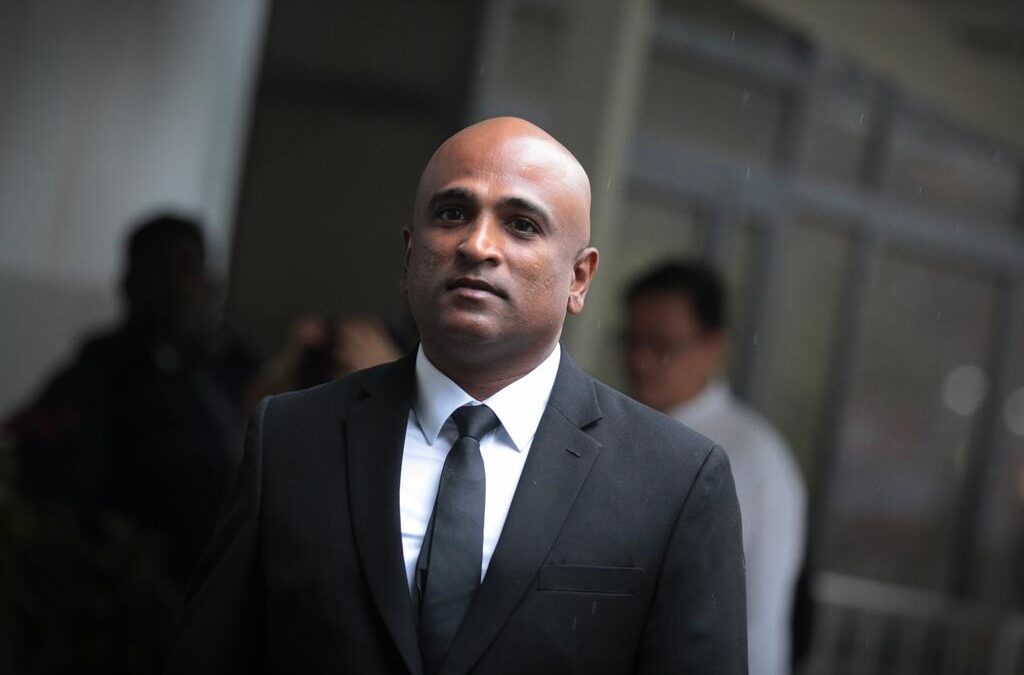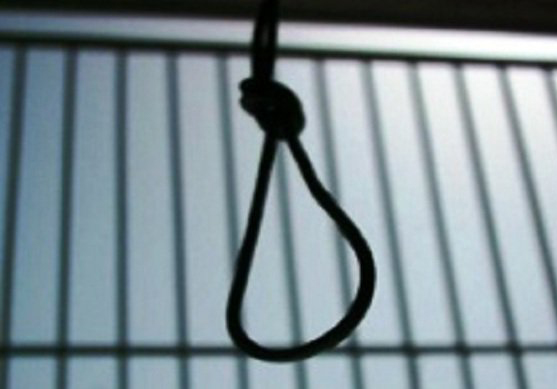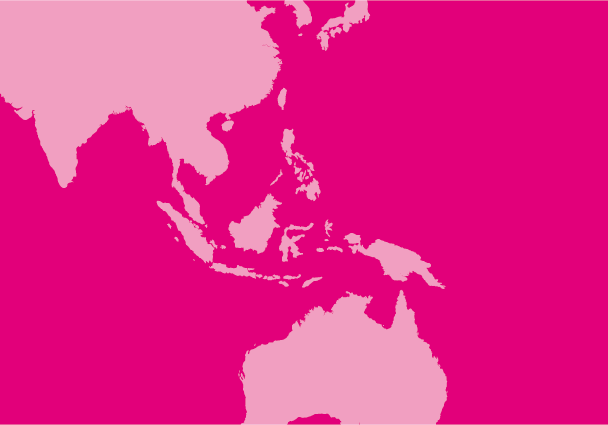
Mar 26, 2020 | News
The ICJ, Amnesty International, ARTICLE 19, ASEAN Parliamentarians for Human Rights, CIVICUS and Human Rights Watch today called on Singapore authorities to drop investigations of human rights lawyer M Ravi and two other individuals under Singapore’s contempt of court law and cease their harassment of human rights defenders.
On 13 March, police raided the office of human rights lawyer M Ravi, editor of an independent news website, Terry Xu, seizing his phone, passport and firm’s laptop.
He is apparently under investigation for contempt of court under the Administration of Justice Act (AJPA).
The investigation followed the publication of articles on independent media website ‘The Online Citizen’ (TOC) relating to his client, Mohan Rajangam, a Singaporean who challenged the legality of his extradition from Malaysia in 2015.
The same day, police raided the home of Terry Xu, TOC’s editor, and confiscated his electronic equipment. He is also being investigated for contempt of court under the AJPA, after he published articles on Rajangam’s case. Two other individuals are also being subject to investigation, including Rajangam himself and a writer for the TOC.
Even as the police have stated that the publication online on TOC of parts of Rajangam’s affidavit breached contempt of court regulations, it is unclear what exact content poses a risk of prejudice to the court proceedings.
“The contempt of court doctrine under common law was, for years, used by authorities to curtail speech surrounding politically sensitive topics and cases,” noted Frederick Rawski, ICJ’s Director for Asia and the Pacific.
“After the coming into force of the AJPA, the contempt regime is even more vulnerable for misuse – these current raids and investigations only evidence that how the law can be abused to violate the rights of individuals.”
Investigations of the four individuals for contempt of court continue. The ICJ has been informed that as of 15 March, M Ravi had put the police on notice that the contents of his mobile phone and laptop are subject to legal professional privilege and should remain confidential until a formal ruling is made by a court of law on the matter.
Terry Xu and M Ravi have been targeted and harassed constantly by authorities for information they have released in their professional capacities as an independent journalist and human rights lawyer respectively – notably through abuse of legal mechanisms. Terry Xu is currently fighting pending cases in court relating to alleged defamation of political officials and Singapore’s problematic Protection from Online Falsehoods and Manipulation Act (POFMA). M Ravi has similarly faced action by the Attorney-General’s Chambers for his advocacy against the death penalty.
“In the lead-up to elections, it is even more crucial that the Singapore government ensure that freedom of expression, opinion and information are protected and that independent media is allowed to operate to ensure communication of a diversity of opinions and ideas and inform public opinion,” said Rawski.
“For these reasons we urge the authorities to cease harassment of the four individuals and call on them to drop investigations against them”.
Read the joint statement here.
Contact
Frederick Rawski, ICJ Asia Pacific Regional Director, frederick.rawski(a)icj.org
Background
In its 2019 regional report, ‘Dictating the Internet: Curtailing Free Expression, Opinion and Information Online in Southeast Asia’, the ICJ found that in Singapore contempt of court proceedings have been used to curtail freedom of expression and information under the guise of “maintaining orderly proceedings” and “protecting public confidence in the judiciary”, particularly in cases of online criticism touching on politically sensitive matters.
In October 2017, the Administration of Justice (Protection) Act 2016 came into force, despite well founded concerns that its vague provisions could result in abusive interpretation and implementation, given existing trends of use of contempt of court under common law to limit freedom of expression.
The AJPA lowered the threshold for contempt in what is referred to as “scandalizing the Court”, expanding judicial powers to punish such contempt with increased and onerous penalties. Section 3(1) criminalizes the “scandalizing of court” through (i) “impugning the integrity, propriety or impartiality” of judges by “intentionally publishing any matter or doing any act that… poses a risk that public confidence in the administration of justice would be undermined” (section 3(1)(a)); and (ii) “intentional” publishing of any material which interferes with pending court proceedings, or sub judice contempt (section 3(1)(b)). Section 3(1)(a) reduced the threshold for “scandalizing” contempt to a mere “risk” of undermining public confidence in the judiciary, where the common law test established in the landmark case of Attorney-General v Shadrake Alan was to establish a “real risk” of such undermining of confidence. This exacerbated a standard that was already deeply problematic.
Section 12(1) of the AJPA increased the maximum penalty for “scandalizing” contempt to three years’ imprisonment or a fine of S$100,000 (approx. USD 72,051) or both, when under common law, a six-week imprisonment sentence and S$20,000 (approx. USD 14,410) fine had been deemed appropriate.

Apr 12, 2019 | Advocacy, News, Open letters
The ICJ sent a letter urging Singapore’s government to refrain from passing into law the Protection from Online Falsehoods and Manipulation Bill 2019 (‘Online Falsehoods Bill’) in its current form.
The letter was sent to Singapore’s Prime Minister, Deputy Prime Ministers, Minister for Law and Speaker of the Parliament.
The bill is reportedly expected to be adopted and come into force in the second half of 2019.
The ICJ acknowledged the efforts of Singapore’s government to attempt to counteract potential infringements on human rights and fundamental freedoms which may emerge from abusive communications involving the spread of misinformation. It noted however that the bill may, contrary to the object and purpose of its introduction, result in far-reaching limitations on the rights to freedom of expression, opinion and information.
The ICJ indicated that its provisions present a real risk that it can be wielded in an arbitrary manner to curtail important discussion of matters of public interest in the public sphere, including content critical of the government. Critical dissent, free exchange and development of opinions, and free access to information are necessary to maintain an informed society and ensure transparency, accountability and informed debate on crucial matters of public interest.
The letter included a legal briefing highlighting the ICJ’s concerns regarding provisions of the bill which contravene international human rights law and standards.
Singapore-online regulation bill letter-advocacy-open letter-2019-ENG Letter (PDF)
Singapore-online regulation bill briefing-advocacy-open letter-2019-ENG Briefing (PDF)
See also
ICJ, ‘Singapore: Parliament must reject internet regulation bill that threatens freedom of expression’, 4 April 2019, https://www.icj.org/singapore-parliament-must-reject-internet-regulation-bill-that-threatens-freedom-of-expression/

Apr 4, 2019 | News
Today, the ICJ urged Singapore’s Parliament not to pass the Protection from Online Falsehoods and Manipulation Bill 2019 (‘Online Falsehoods Bill’), which was tabled on Monday, 1 April.
The ICJ said that the bill, if passed into law, would result in far-reaching limitations on freedom of expression, opinion and information in Singapore, and could be wielded to curtail important discussion of matters of public interest, including content critical of the government.
“This bill, if passed, would make the government the sole arbiter of what information is permissible online and what is not, creating a real risk that the law will be misused to clamp down on opinions or information critical of the government,” said Frederick Rawski, ICJ Director for Asia and the Pacific.
The bill authorizes ministers to direct individuals, owners or operators of online platforms, digital advertising and internet intermediaries to remove, make corrections to, disable or block access to a “false statement of fact”, if such action is deemed to be “in the public interest”. Such ministerial directions can be made even if a false statement “has been amended or has ceased to be communicated in Singapore”.
The bill does not provide any real definition of “false statement of fact” and does not clarify what constitutes “public interest”. The bill also fails to provide for exceptions or defences such as honest mistake, parody, artistic merit, or public interest. Executive discretion is also not subject to judicial review or oversight under its provisions.
Criminal penalties for non-compliance with the law are severe, and include hefty fines and up to ten years’ imprisonment for violations.
These may be imposed on individuals and/or owners or operators of online platforms, as well as intermediaries who facilitate the communication of such statements, including social networking services, search engine services, internet-based messaging services and video-sharing services.
The bill is also clear that communications through SMS (Short Message Service) and MMS (Multimedia Messaging Service) fall under its remit.
“The spread of misinformation online is a complex problem that cannot be effectively addressed by simply granting broad discretion to government officials to censor online expression,” said Rawski.
“A multi-pronged approach that protects the rights to free expression, opinion and information is required, beginning with better media literacy education and free access to information, including to opinions critical of the government,” he added.
Contact
Frederick Rawski, ICJ Asia Pacific Regional Director (Bangkok), e: frederick.rawski(a)icj.org
Singapore-fake news bill-News-web story-2019-ENG (full story with additional information, in PDF)

Mar 15, 2018 | News
The ICJ called on the Government of Singapore to halt the impending execution of Hishamrudin bin Mohd, and take immediate steps to impose a moratorium on executions, with a view towards the abolition of the death penalty in the near future.
Hishamrudin bin Mohd, a Singaporean national, was sentenced to death in 2016, under mandatory sentencing laws, after being convicted of possessing drugs for the purpose of trafficking.
His execution is scheduled to take place on 16 March 2018.
The ICJ opposes the death penalty in all circumstances as a denial of the right to life and a form of cruel, inhuman and degrading punishment.
“Singapore, as this year’s Chair of the Association of Southeast Asian Nations, must use this opportunity to lead the way in the region in recognizing that the death penalty is inherently incompatible with human dignity and a violation of human rights,” Sam Zarifi, ICJ Secretary General said.
“Singapore should set an example to other ASEAN Member States in upholding the rule of law and protecting human rights,” he added.
Furthermore, the ICJ expressed serious concern that Singapore still applies the mandatory death penalty, including for drug offenses which, according to international standards does not the meet the threshold of “most serious crimes” to which the death penalty must be confined.
“States that have not yet abolished the death penalty should never apply them for drug offenses nor make them automatic,” Zarifi said.
The UN Special Rapporteurs on extrajudicial, summary or arbitrary executions have stated that under no circumstances should death penalty be mandatory.
International human rights law is undermined when mandatory death penalty is imposed since sentencing must reflect assessment of the factors in each case to ensure that the defendant’s human rights and the narrow limits on the use of death penalty have been respected.
The ICJ notes that the UN General Assembly has adopted repeated resolutions with the support of the overwhelming majority of States, most recently in December 2016 calling for an international moratorium on the use of death penalty with a view to abolition.
Presently, some 170 States around the world have either abolished the death penalty or put a moratorium to its use.
The UN Secretary General Antonio Guterres emphasized that “the death penalty has no place in the 21st century.”
Contact
Emerlynne Gil, Senior International Legal Adviser for Southeast Asia, t: +662 619 8477 (ext. 206); e: emerlynne.gil(a)icj.org
Background
Hishamrudin bin Mohd, a Singaporean national, was found guilty of possessing 34.94 grams of diamorphine, allegedly for the purpose of trafficking. His appeal was rejected on 3 July 2017 and his execution was scheduled on 16 March 2018.
The ICJ received information that Hishamrudin bin Mohd filed a last-minute application for judicial review on 12 March 2018 and a closed-door hearing was set on 14 March 2018. However, on 15 March 2018, the Court of Appeal denied his appeal.

Dec 13, 2017 | News
The ICJ today urged the Government of Singapore to end the harassment of human rights defender Jolovan Wham and to amend laws used to restrict his work and the work of other human rights defenders.
Jolovan Wham is to appear at a pre-trial conference on seven criminal charges today. Jolovan Wham is a well-known human rights defender in Singapore who previously worked for a group that advocates for the rights of migrant workers and plays a leading role against the death penalty and the promotion of freedom of expression.
“These charges are not only an impermissible attack on Jolovan Wham individually, but human rights work more generally in Singapore,” said Sam Zarifi, Secretary General of ICJ.
“It is an unmistakable message to other human rights defenders that they may face the same harassment and intimidation if they continue their work,” he added.
Jolovan Wham was charged in connection with facilitating a Skype conference with Hong Kong human rights defender, Joshua Wong Chi-Fung, on “civil disobedience and democracy in social change”.
Other charges relate to his organizing peaceful public assemblies, allegedly without permits, to protest the death penalty and to commemorate the day when 16 individuals were arrested by Singapore authorities in 1987 and detained without trial under the country’s Internal Security Act (ISA).
He was also charged for refusing to sign statements prepared by police authorities when he was taken in for investigation on 28 November 2017.
Most of the charges against Jolovan Wham were for alleged violations of Section 7 of the Public Order Act, which makes an offence the holding of a public assembly or public procession without a permit.
The ICJ considers that aspects of Section 7, particularly as applied to the charges against Jolvan Wham, may serve to impermissibly restrict the exercise of the right to freedom of peaceful assembly in Singapore, which is protected under international standards.
“Singapore should immediately act to amend the Public Order Act with a view to ensuring that it is consistent with international human rights law and standards, particularly as they relate to the exercise freedoms of expression and assembly,” Zarifi said.
Under international law and standards, prior authorization of assemblies is generally inconsistent with the right to freedom of peaceful assembly, except for narrow exceptions.
The UN Special Rapporteur on the rights to freedom of peaceful assembly and association, in a 2012 report, clarified that prior authorization should generally not be necessary.
At most, it should require notification that is not unduly burdensome, so as allow the authorities to facilitate the exercise of the right to peaceful assembly and to take measures to protect public safety and public order and the rights and freedoms of others.
The Declaration on the Right and Responsibility of Individuals, Groups and Organs of Society to Promote and Protect Universally Recognized Human Rights and Fundamental Freedoms (Declaration on Human Rights Defenders), emphasizes the right of human rights defenders “to meet or assemble peacefully” and “to study, discuss, form and hold opinions on the observance, both in law and in practice, of all human rights and fundamental freedoms, and through these and other appropriate means, to draft public attention to those matters
Contact:
Emerlynne Gil, ICJ Senior International Legal Adviser, t: +66 840923575 ; e: emerlynne.gil(a)icj.org
Singapore-Wham harrassment-News-Press releases-2017-ENG (full story with additional info, in PDF)









